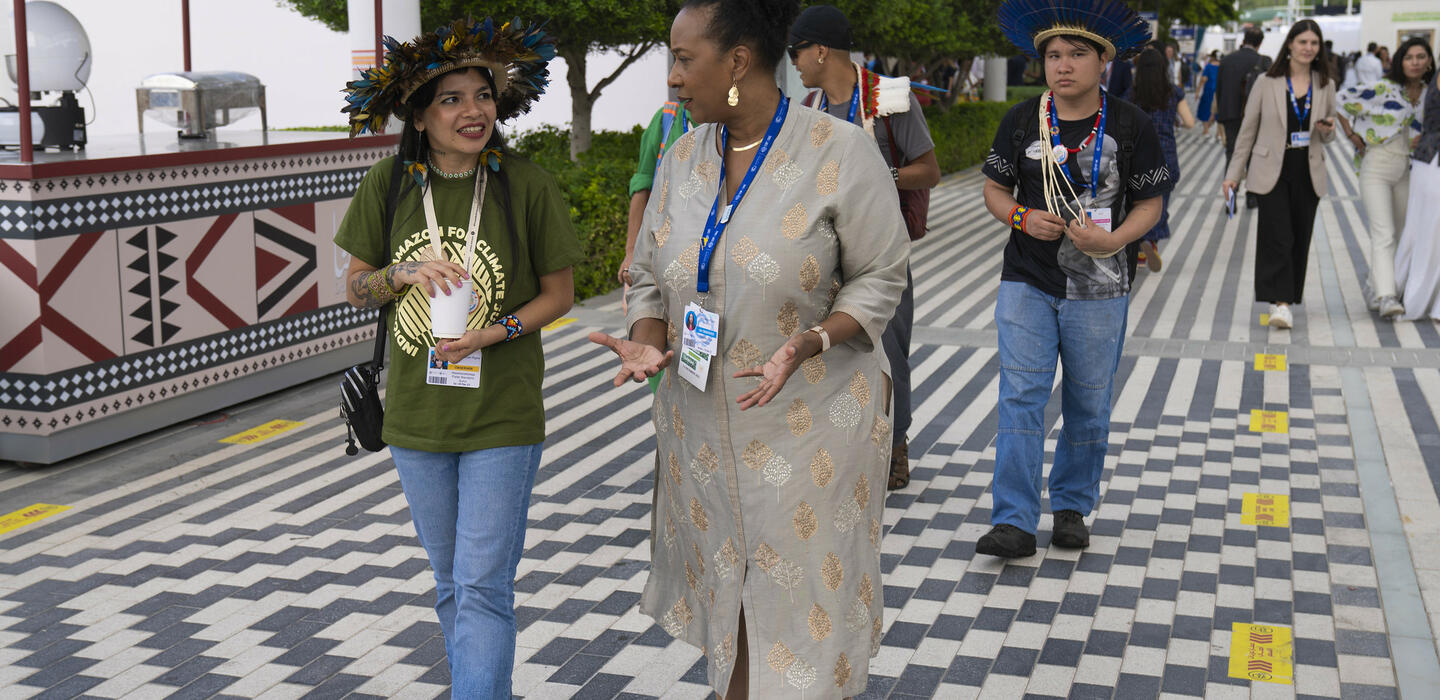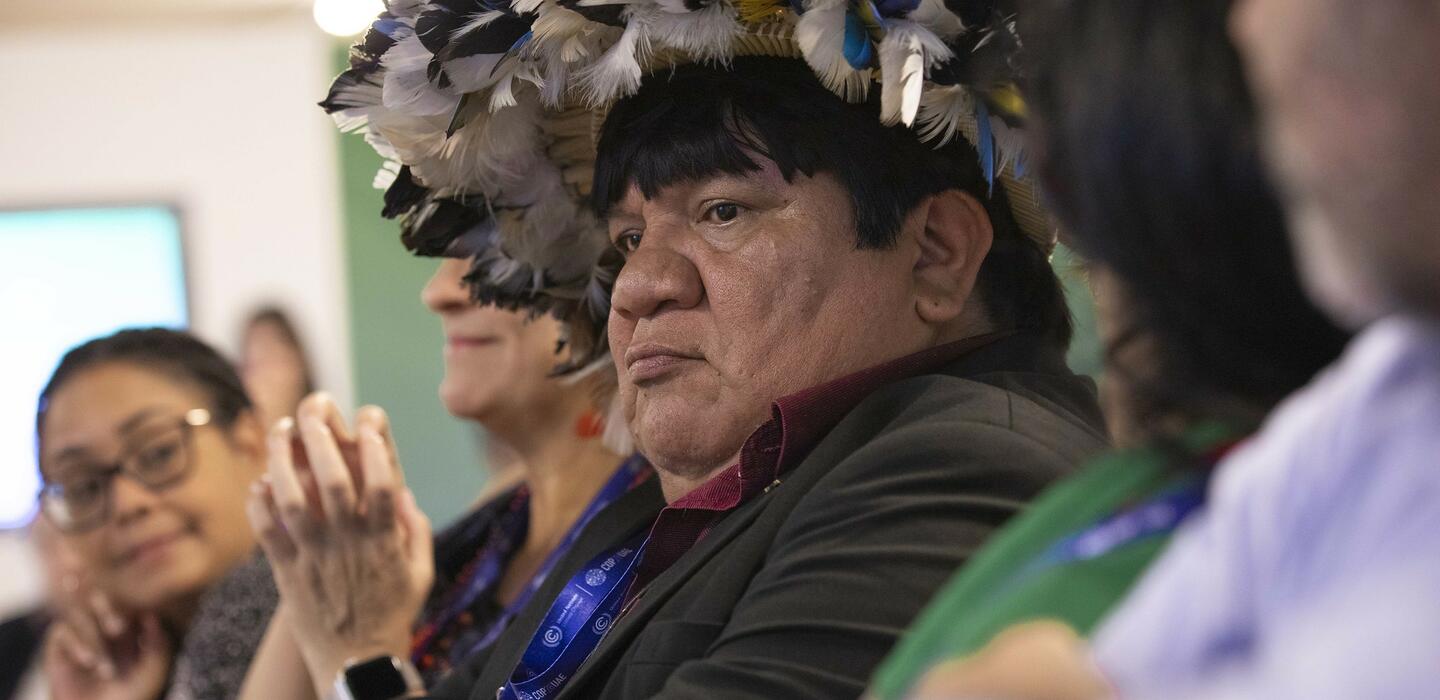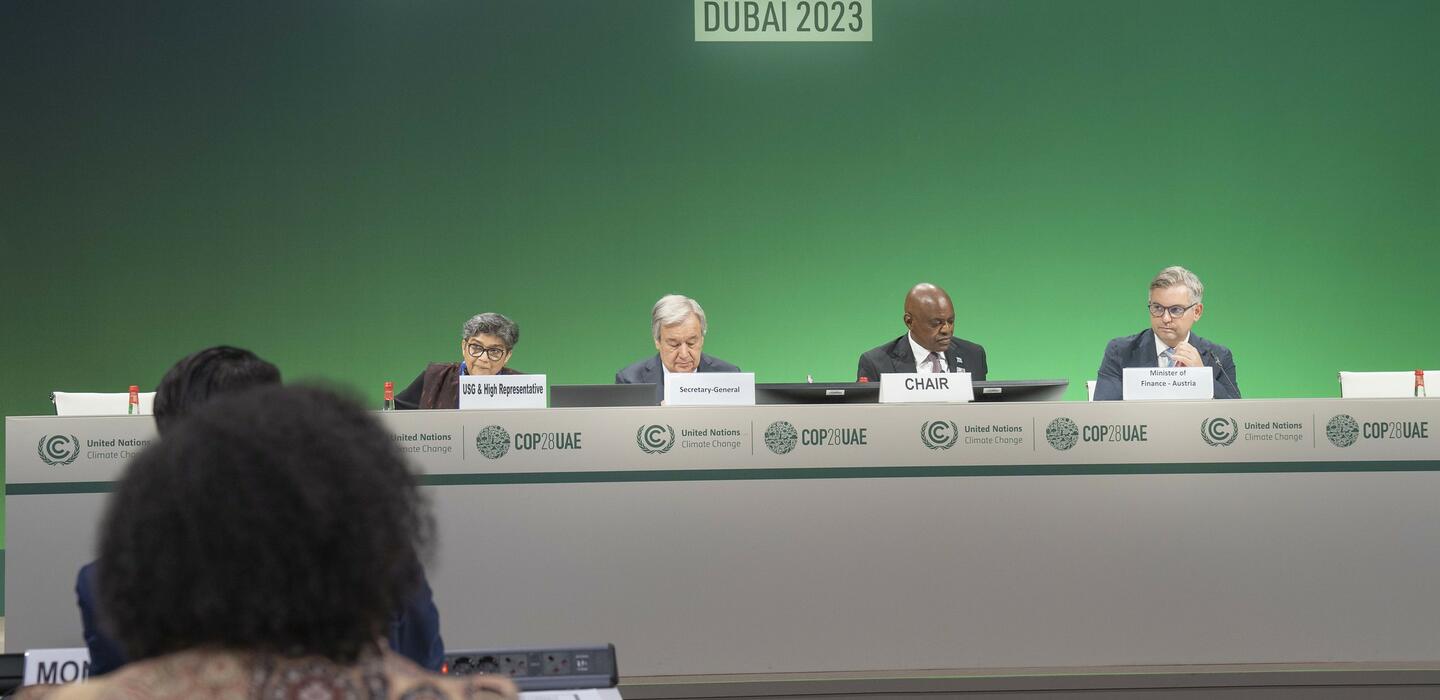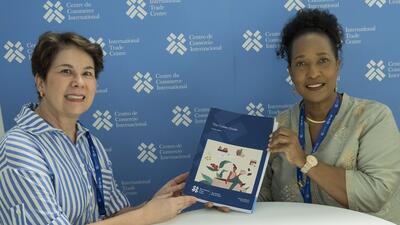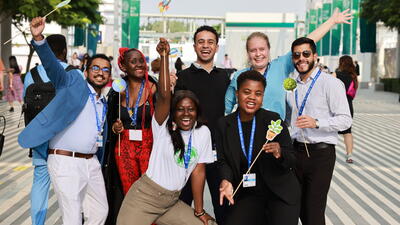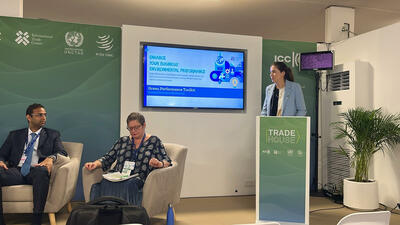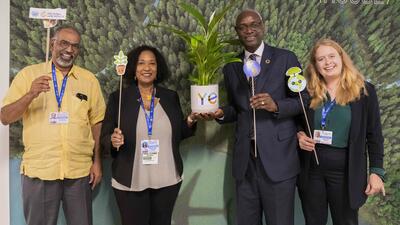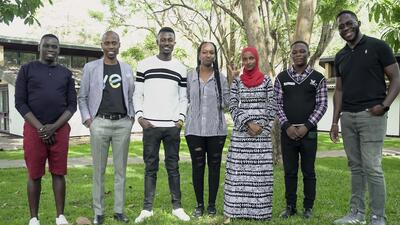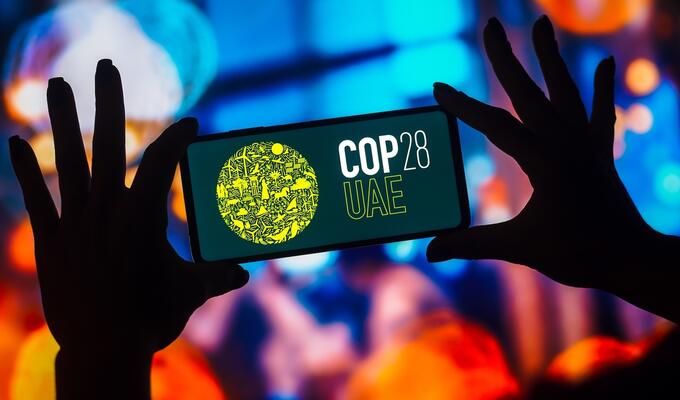
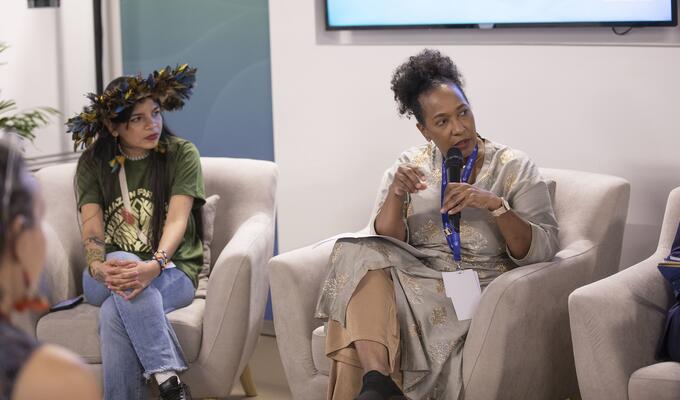

What happened at COP28?
The COP 28 UN Climate Change Conference in Dubai was historic, gathering 85,000 participants, including over 150 Heads of State and Government.
It also concluded the first Global Stocktake of efforts under the Paris Agreement – that targets keeping the global temperature increase below 1.5°C by 2030 – revealing overall slow progress in tackling climate change.
In response, countries pledged to accelerate actions by 2030, emphasizing a transition from fossil fuels to renewables like wind and solar power. This was a huge step forward in the efforts to tackle the climate emergency.
While COP 28 marked progress, it also highlighted the ongoing challenges and opportunities for the global community in 2024 and beyond.
These are some of the key developments from the last global talks to tackle climate change, which included the participation of ITC.
The beginning of the end of the fossil fuel era
The COP28 final declaration said this was the ‘beginning of the end’ for the fossil fuel era.
This was the first time that the COP final agreement included language on fossil fuels, emphasizing the need for a swift, just, and equitable transition supported by deep emissions cuts and increased finance.
The Global Stocktake set the stage for countries to develop stronger climate action plans by February 2025. It highlighted the urgency of cutting global greenhouse gas emissions by 43% by 2030, calling for tripling of renewable energy generation and doubling energy efficiency by the same year.
Additionally, the Stocktake urged the phase-down of unabated coal power, the elimination of inefficient fossil fuel subsidies, and other measures. Developed countries were called upon to lead these efforts.
In the short term, the conference of parties was encouraged to submit emission reduction targets aligned with the 1.5°C limit, for the next round of climate action plans.
New funding for loss and damage
At COP28, a historic agreement was reached on funding arrangements for addressing loss and damage, including the establishment of a dedicated fund under the United Nations Framework Convention on Climate Change (UNFCCC). Commitments exceeded $600 million by August 2024.
That fund comes in addition to a fund agreed the previous year, to support vulnerable communities affected by climate change. This fund totals $661 million, an important development in climate justice.
The new Santiago Network for Loss and Damage in Geneva will provide technical assistance for developing countries affected by climate change.
Video
Just Transition
COP28 reinforced the aims of a Just Transition, the principle that workers and communities should be shielded from fallout of climate policies while sharing in the benefits of a move to a zero-carbon future.
That’s especially important for small businesses, which often operate with limited resources and face unique challenges. They may lack the financial capacity and technical expertise to adapt to new environmental regulations, renewable energy technologies, or sustainable practices on their own.
This momentum has been gradually building. In June, all countries reaffirmed the International Labour Organization’s 2015 Just Transition guidelines. Over 30% of national climate plans for 2030 now integrate social dimensions through dedicated Just Transition funds, alongside laws and strategies for worker protection, job creation, and skills development.
However, these efforts are still relatively new and remain in the minority across the globe.
The task is now to mainstream social justice throughout climate decision-making. COP28 could make a difference after agreeing on the UNFCCC’s first-ever Just Transition Work Programme (JTWP).
Its priorities include:
-
Strategies that consider how climate policies affect workers and communities.
-
Social protection for workers and communities that face extreme climate events.
-
Decent work and quality jobs that meet the needs of each country, through social dialogue, social protection and labour rights.
-
Policymaking that considers the voices of workers, local communities, indigenous peoples, small businesses, consumers and across all of these, women and young people.
-
International cooperation that leads to further action. Four current partnerships in South Africa, Indonesia, Vietnam and Senegal have mixed results so far.
Resilience and finance
At COP28, parties agreed on targets for the Global Goal on Adaptation (GGA) and its framework, outlining key areas for resilience-building such as water, food, health, and infrastructure.
Climate finance was also a key area of focus, with the Green Climate Fund (GCF) receiving pledges totaling $12.8 billion for its second replenishment, and commitments to other climate funds exceeding $362 million.
However, despite these pledges, trillions are still needed for developing countries to move to clean energy and adapt to climate change.
The Global Stocktake emphasized reforming systems that manage climate finance, scaling up grants and favourable loans while finding new sources of finance.
COP28 also discussed setting new climate finance goals in 2024.
Video
Linking climate action with nature
COP28 made strides in integrating climate action with nature conservation, addressing the triple planetary crisis: climate change, biodiversity loss, and pollution. Governments were urged to consider ecosystems, biodiversity, and carbon stores like forests when formulating stronger national climate action plans.
The decision emphasized the vital role of conserving, protecting, and restoring nature and ecosystems in achieving the Paris Agreement's temperature goals. Halting and reversing deforestation and forest degradation by 2030 received formal recognition under the UNFCCC for the first time. That could cut 14% of global emissions and trap more carbon in forests.
Governments were urged to support enhanced investment, based on scientific evidence and indigenous and local knowledge systems. Nature-based solutions were recognized as key to mitigating climate change impacts and safeguarding vulnerable communities.
These efforts align with the goals of the Kunming-Montreal Global Biodiversity Framework, which includes commitments like protecting 30% of the planet's land and oceans for nature by 2030 (the "30x30" pledge) and restoring 30% of degraded ecosystems.
Ramping up practical climate solutions
At COP28, governments, businesses, and civil society showcased practical climate solutions at the Global Climate Action space.
The High-Level Champions launched the 2030 Climate Solutions roadmap, outlining measures to halve global emissions, address adaptation gaps, and increase resilience by 2030.
Several major announcements were also made:
-
125 countries signed the UAE Climate and Health Declaration, mobilizing $1 billion for climate and health solutions.
-
137 Heads of State committed to transforming food systems under the COP28 UAE Declaration on Sustainable Agriculture, Resilient Food Systems, and Climate Action, with financing commitments totaling $2.6 billion.
-
The EU and its Member States announced 175 million euros to support methane reduction efforts through the Methane Finance Sprint, aiming to catalyze initiatives across the energy sector.








